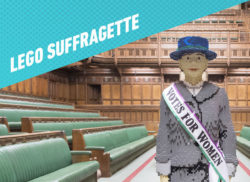‘I don’t belong here’. By Dr Gemma McKennaAssistant Professor, Health Services Management Centre, School of Social Policy General Election, Thursday 7th May 2015. Palms sweaty, breath shallow, I am in the wrong place, surely? No, apparently not, it is my name on the ballot. This feels WEIRD. I vote for myself. At least that’s one … Continue reading “Working class women in politics: despite the obstacles there is HOPE.”
Category: Uncategorised
Silencing the Cassandra’s? The UK’s Winter Economic Forecast and the Tory Government’s Role in the Crisis
By Dr Huw Macartney Associate Professor in Political Economy Department of Political Science and International Studies, School of Government The UK Chancellor, Jeremy Hunt, recently portrayed the UK economy as being in rude health and sought to silence the Cassandra’s who predict a bleak winter ahead. This week positive news about falling food prices might … Continue reading “Silencing the Cassandra’s? The UK’s Winter Economic Forecast and the Tory Government’s Role in the Crisis”
True crime drama and creative co-production research: the art and social science of narrative
By Dr Adam Matthews Senior Research Fellow, School of Education In The Two Cultures and the Scientific Revolution, C.P. Snow made the case that science and the humanities were split into two cultures. Snow was well qualified to identify the gap between facts and fiction – he was a physical chemist and novelist. This year, … Continue reading “True crime drama and creative co-production research: the art and social science of narrative”
The not so beautiful game within the Spanish football landscape
By Dr Kamran Khan Associate Professor in Language, Social Justice and Education, School of Education Recently, the Spanish women’s national team became campeonas in Australia at the World Cup. Their play relied on intelligence, movement, possession, and no little skill. Spain produces some of the most exhilarating and beautiful football in Europe in all forms … Continue reading “The not so beautiful game within the Spanish football landscape”
Can Labour’s plans bring an end to the damaging blame culture surrounding young men and boys?
By Dr Sophie King-Hill, Senior Fellow, Health Services Management Centre & Jonathan Davis, BA Theology and Religion, Research Assistant on the project ‘We’re in this together’ – sexual harassment in schools: a boys’ voice’, and an active member of Mantality UoB Labour’s ambitions to open discussions with men and boys to combat violence against women … Continue reading “Can Labour’s plans bring an end to the damaging blame culture surrounding young men and boys?”
Working with long Covid, the case for better evidence and knowledge in the workplace
By Rebecca Riley, Associate ProfessorBirmingham Business School A new report from the TUC and the charity Long Covid Support reveals as many as two-thirds of UK workers with long Covid have faced unfair treatment. Based on the work of City REDI and my own personal experience, I reflect on their findings and recommendations. An estimated … Continue reading “Working with long Covid, the case for better evidence and knowledge in the workplace”
Local councils must work harder at enabling women to be councillors
By Jason Lowther, Director of the Institute for Local Government Studies (INLOGOV), University of Birmingham Published on INLOGOV Blog Local councils can and must do more to enable women to be councillors. Haringey’s new cabinet shows that this can be done, but fifty years after all government elected officials across the UK were finally elected … Continue reading “Local councils must work harder at enabling women to be councillors”
Putting it Simply: What is the Good Friday Agreement?
By Professor Joanne Murphy Department of Management The Good Friday or Belfast Agreement of April 10th 1998, is an international Treaty signed by the British and Irish Governments and is generally regarded to have brought about an end to the long-running conflict in Northern Ireland known as ‘the Troubles’. The Agreement was the culmination of … Continue reading “Putting it Simply: What is the Good Friday Agreement?”
Reflections on the 2023 Spring Budget: expert opinions
Nearly two weeks on from the Spring Budget announcement, we’re looking back on the policy changes, responses, and how they will affect you. Support for energy bills “The Chancellor has announced that the energy price guarantee will remain unchanged at £2,500 until June 2023. In the meantime, the household winter discount of £400 on energy … Continue reading “Reflections on the 2023 Spring Budget: expert opinions”
Why SVB’s bankruptcy isn’t surprising
By Dr Huw MacartneyDepartment of Political Science and International Studies, University of Birmingham Edited version of an article originally published on iai We’re asking the wrong kind of questions surrounding the collapse of Silicon Valley Bank. Five main issues have emerged thus far: business models; stability; moral hazard; regulation; and tightening. But without considering the … Continue reading “Why SVB’s bankruptcy isn’t surprising”










